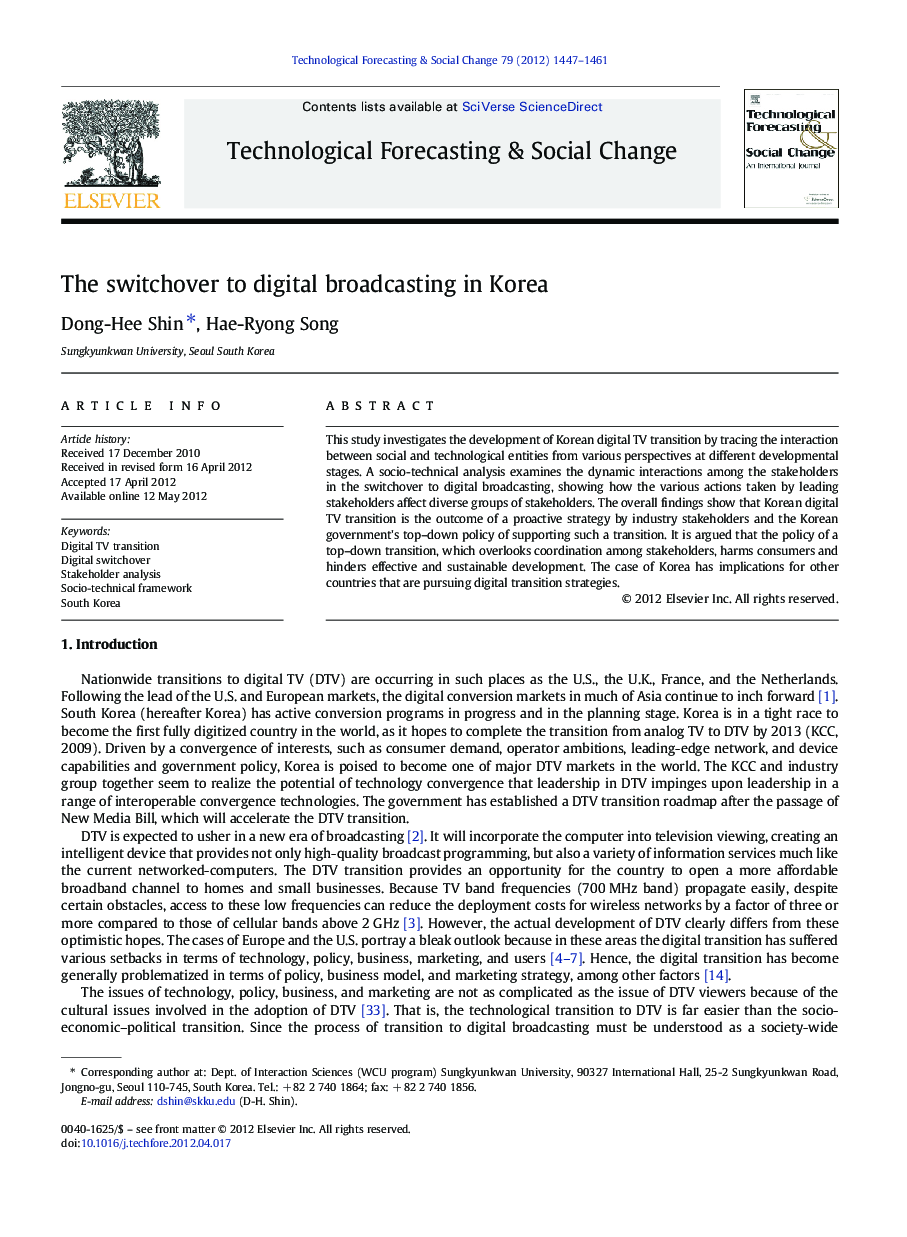| Article ID | Journal | Published Year | Pages | File Type |
|---|---|---|---|---|
| 896837 | Technological Forecasting and Social Change | 2012 | 15 Pages |
This study investigates the development of Korean digital TV transition by tracing the interaction between social and technological entities from various perspectives at different developmental stages. A socio-technical analysis examines the dynamic interactions among the stakeholders in the switchover to digital broadcasting, showing how the various actions taken by leading stakeholders affect diverse groups of stakeholders. The overall findings show that Korean digital TV transition is the outcome of a proactive strategy by industry stakeholders and the Korean government's top–down policy of supporting such a transition. It is argued that the policy of a top–down transition, which overlooks coordination among stakeholders, harms consumers and hinders effective and sustainable development. The case of Korea has implications for other countries that are pursuing digital transition strategies.
► Investigates the development of Korean digital TV transition ► A socio-technical analysis examines the dynamic interactions among the stakeholders in the switchover to digital broadcasting. ► The outcome of a proactive strategy by industry players and the government's top–down policy of supporting such a transition ► The policy of a top–down transition harms consumers and hinders effective transition. ► Implications for other countries that are pursuing digital transition strategies
